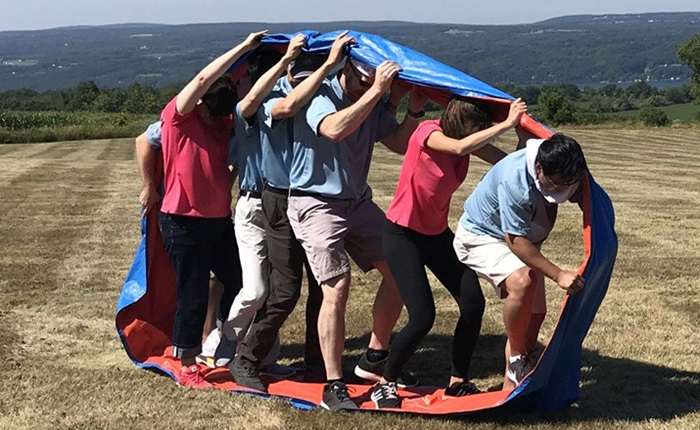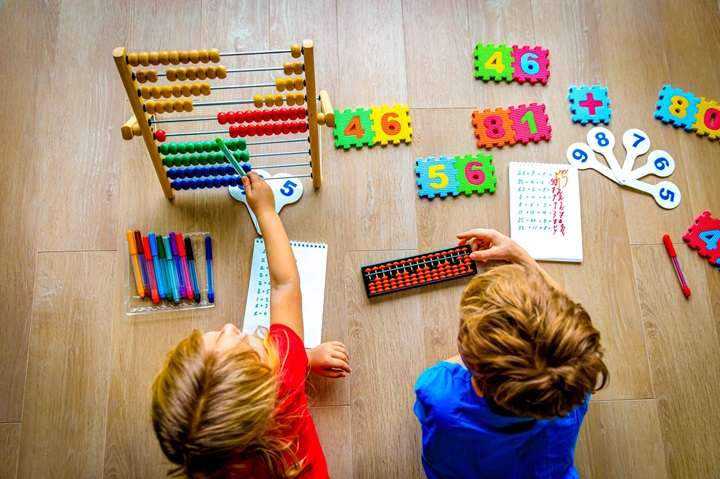School can be a place of immense learning, but it should also be fun! Integrating games into the school day can enhance engagement, build teamwork, and even reinforce academic concepts. Whether you’re a teacher looking to energize your classroom or a student searching for fun activities during breaks, there are plenty of games to play at school that are both enjoyable and educational. In this comprehensive guide, we’ll explore a variety of games that cater to different age groups, interests, and educational goals.
Games in school aren’t just about passing the time—they serve a valuable purpose. They can be used to:
- Foster Social Skills: Games encourage communication, collaboration, and problem-solving among students.
- Enhance Learning: Many games are designed to reinforce academic concepts in a fun and interactive way.
- Boost Engagement: Incorporating games into the curriculum can make learning more exciting and less monotonous.
- Promote Physical Activity: Outdoor and physical games help keep students active and healthy.
Whether you’re looking for games that integrate with your curriculum or simply want to add some fun to the school day, this guide has you covered.
Classroom Games

Icebreakers and Warm-ups
Icebreakers and warm-ups are perfect for getting students comfortable and ready to learn. They help set a positive tone for the day and build a sense of community.
1. Two Truths and a Lie
- How to Play: Each student shares three statements about themselves—two true and one false. The rest of the class guesses which statement is the lie.
- Benefits: Encourages communication and helps students learn more about each other.
2. Bingo with a Twist
- How to Play: Create bingo cards with different characteristics or interests (e.g., “has a pet,” “likes soccer”). Students mingle to find peers who match the characteristics and mark their cards.
- Benefits: Promotes interaction and helps students get to know one another.
3. Speed Networking
- How to Play: Set a timer and have students rotate every few minutes to introduce themselves and share interesting facts with their peers.
- Benefits: Builds social skills and helps students feel more comfortable in the classroom.
Academic Games
Academic games make learning fun while reinforcing important concepts. These games can be adapted for various subjects and grade levels.
1. Jeopardy!
- How to Play: Create a game board with categories and point values. Students choose questions from the board, and the teacher reads them aloud. Teams or individuals answer to earn points.
- Benefits: Reinforces knowledge in a competitive and engaging format.
2. Spelling Bee
- How to Play: Students take turns spelling words aloud. For an added challenge, use words related to recent lessons or vocabulary.
- Benefits: Enhances spelling skills and vocabulary retention.
3. Math Bingo
- How to Play: Instead of numbers, use math problems on the bingo cards. Call out math problems, and students solve them to mark their cards.
- Benefits: Reinforces math skills in a fun way.
Problem-Solving Games
Problem-solving games are excellent for developing critical thinking and collaboration skills.
1. Escape Room Challenges
- How to Play: Set up puzzles and clues around the classroom or school. Students work in teams to solve them and “escape” within a time limit.
- Benefits: Encourages teamwork and critical thinking.
2. Mystery Bag
- How to Play: Fill a bag with various objects. Students reach in without looking and describe the object to their team, who must guess what it is.
- Benefits: Enhances descriptive skills and teamwork.
3. Logic Puzzles
- How to Play: Provide students with a series of logic puzzles or riddles to solve individually or in teams.
- Benefits: Develops logical reasoning and problem-solving abilities.
Outdoor Games
Team Sports
Team sports are a great way to promote physical activity and teamwork.
1. Soccer
- How to Play: Divide students into teams and play a standard game of soccer. Use a smaller field for younger students.
- Benefits: Encourages teamwork, coordination, and physical fitness.
2. Basketball
- How to Play: Organize a game of basketball with modified rules if needed. Focus on fun and participation rather than competition.
- Benefits: Builds physical skills and teamwork.
3. Volleyball
- How to Play: Set up a volleyball net and play a friendly game. Adjust the rules and court size for different age groups.
- Benefits: Improves coordination and team collaboration.
Relay Races
Relay races are exciting and can be adapted to fit various themes and age groups.
1. Traditional Relay Race
- How to Play: Set up a course where teams pass a baton to each member. The first team to complete the course wins.
- Benefits: Enhances speed, teamwork, and coordination.
2. Obstacle Course Relay
- How to Play: Create an obstacle course with cones, hoops, and other equipment. Teams navigate the course, completing each obstacle before tagging the next teammate.
- Benefits: Promotes physical fitness and problem-solving.
3. Water Relay Race
- How to Play: Teams carry water from one bucket to another using cups or sponges. The team with the most water in the bucket at the end wins.
- Benefits: Fun and engaging, especially on hot days.
Scavenger Hunts
Scavenger hunts are a great way to explore and learn.
1. Nature Scavenger Hunt
- How to Play: Create a list of items or features found in nature (e.g., a leaf, a rock). Students search for these items in the schoolyard or a nearby park.
- Benefits: Encourages observation skills and appreciation for nature.
2. Educational Scavenger Hunt
- How to Play: Hide educational clues or items around the school. Each clue leads to the next and reinforces a lesson or concept.
- Benefits: Integrates learning with fun exploration.
3. Themed Scavenger Hunt
- How to Play: Design a scavenger hunt based on a specific theme (e.g., historical figures, famous landmarks). Include clues and tasks related to the theme.
- Benefits: Makes learning about a topic interactive and exciting.
Games for Group Work

Collaborative Challenges
Collaborative challenges are ideal for building teamwork and problem-solving skills.
1. Build a Tower
- How to Play: Provide teams with materials like paper, tape, and scissors. Challenge them to build the tallest tower in a set amount of time.
- Benefits: Encourages creativity and teamwork.
2. Design a Puzzle
- How to Play: Each team creates a puzzle (e.g., a jigsaw puzzle or a logic puzzle) for the other teams to solve.
- Benefits: Promotes creativity and critical thinking.
3. Storytelling Relay
- How to Play: Teams take turns adding sentences to a story, building on what the previous team member has said.
- Benefits: Enhances creativity and collaboration.
Role-Playing Games
Role-playing games can help students develop empathy and understand different perspectives.
1. Historical Role-Play
- How to Play: Assign students roles from a historical event or period. They research their roles and reenact key events.
- Benefits: Provides a deeper understanding of history and enhances research skills.
2. Job Role-Play
- How to Play: Students act out various professions or job scenarios. This can be tied to lessons about careers or personal development.
- Benefits: Helps students explore career options and develop interpersonal skills.
3. Scenario-Based Role-Play
- How to Play: Present students with different scenarios (e.g., resolving a conflict, planning an event) and have them role-play solutions.
- Benefits: Builds problem-solving and negotiation skills.
Team Building Activities
Team building activities strengthen group dynamics and foster cooperation.
1. Trust Fall
- How to Play: One student falls backward while their teammates catch them. Rotate roles to build trust within the group.
- Benefits: Enhances trust and teamwork.
2. Human Knot
- How to Play: Students stand in a circle, hold hands with two different people across from them, and work together to untangle themselves without letting go.
- Benefits: Encourages communication and collaboration.
3. Minefield
- How to Play: Set up obstacles (or “mines”) in an open area. One student is blindfolded and guided through the minefield by their teammates.
- Benefits: Builds trust and communication skills.
Technology-Based Games
Educational Apps
Educational apps offer interactive and engaging ways to reinforce learning.
1. Quiz Apps
- How to Play: Use quiz apps that cover various subjects. Students can compete individually or in teams.
- Benefits: Reinforces knowledge and makes learning fun.
2. Vocabulary Builders
- How to Play: Use apps designed to enhance vocabulary through games and challenges.
- Benefits: Improves language skills in an interactive way.
3. Math Games
- How to Play: Apps with math games help students practice arithmetic, problem-solving, and logic skills.
- Benefits: Provides extra practice in a fun format.
Interactive Quizzes
Interactive quizzes can be a fun way to review material and test knowledge.
1. Kahoot!
- How to Play: Create or use pre-made quizzes on Kahoot! where students answer questions in real-time.
- Benefits: Engages students through competition and instant feedback.
2. Quizizz
- How to Play: Similar to Kahoot!, Quizizz allows students to answer questions at their own pace while earning points.
- Benefits: Offers flexibility and tracks progress.
3. Quizlet Live
- How to Play: Use Quizlet Live for team-based quiz games, where students work together to match terms and definitions.
- Benefits: Encourages teamwork and reinforces learning.
Virtual Escape Rooms
Virtual escape rooms are a fun way to combine technology and problem-solving.
1. Digital Escape Room
- How to Play: Students solve puzzles and complete challenges in a virtual setting to “escape” within a set time.
- Benefits: Enhances problem-solving skills and teamwork in a digital environment.
2. Themed Escape Rooms
- How to Play: Choose or create escape rooms with specific themes (e.g., historical events, fantasy worlds) that align with classroom topics.
- Benefits: Makes learning interactive and immersive.
3. Interactive Story-Based Escape Rooms
- How to Play: Engage students in a story where they must solve puzzles and make decisions to progress through the narrative.
- Benefits: Combines storytelling with problem-solving for a dynamic learning experience.
Games for Special Occasions

Holiday-Themed Games
Holiday-themed games can add festive fun to the school year.
1. Halloween Scavenger Hunt
- How to Play: Organize a scavenger hunt with Halloween-themed clues and items.
- Benefits: Adds excitement to the holiday season and encourages teamwork.
2. Christmas Bingo
- How to Play: Create bingo cards with Christmas-themed words or images. Students mark their cards as items are called out.
- Benefits: Fun and festive, with a focus on holiday themes.
3. Valentine’s Day Trivia
- How to Play: Host a trivia game with questions related to Valentine’s Day or love.
- Benefits: Provides a fun way to celebrate the holiday while testing knowledge.
End-of-Year Activities
End-of-year activities can celebrate achievements and reflect on the school year.
1. Awards Ceremony
- How to Play: Create fun awards for students (e.g., “Best Team Player,” “Most Creative”). Host a ceremony to recognize their achievements.
- Benefits: Celebrates accomplishments and boosts morale.
2. Memory Lane
- How to Play: Compile a slideshow or video of memorable moments from the school year. Share it with students and reminisce together.
- Benefits: Reflects on the year’s highlights and fosters a sense of accomplishment.
3. Talent Show
- How to Play: Organize a talent show where students can showcase their unique skills and talents.
- Benefits: Provides an opportunity for students to shine and celebrate each other’s talents.
Birthday Celebrations
Birthday celebrations can be a fun way to mark special days at school.
1. Birthday Bingo
- How to Play: Create a bingo card with birthday-themed items. Celebrate students’ birthdays by playing bingo during their special day.
- Benefits: Makes birthday celebrations engaging and interactive.
2. Birthday Scavenger Hunt
- How to Play: Organize a scavenger hunt with birthday-themed clues and prizes.
- Benefits: Adds excitement to birthday celebrations and encourages teamwork.
3. Classroom Party Games
- How to Play: Plan games and activities for birthday parties (e.g., pin the tail on the donkey, birthday charades).
- Benefits: Provides a fun and festive atmosphere for celebrating birthdays.
Related Post:
Meta Quest 2 Games: Exploring the Best VR Experiences in 2024
MSN Free Online Games: A Nostalgic and Entertaining Gaming Experience
Incorporating games into the school day can transform the learning experience, making it more interactive, enjoyable, and effective. From academic games that reinforce classroom concepts to outdoor activities that promote physical fitness and teamwork, there’s a game for every occasion and age group. By integrating a variety of games into your school routine, you can create a dynamic and engaging environment that supports both educational goals and student well-being.
Whether you’re a teacher looking for new ways to energize your classroom or a student seeking fun activities to share with friends, the games outlined in this guide offer a wealth of options. Embrace the power of play and make your school days memorable and enjoyable!


